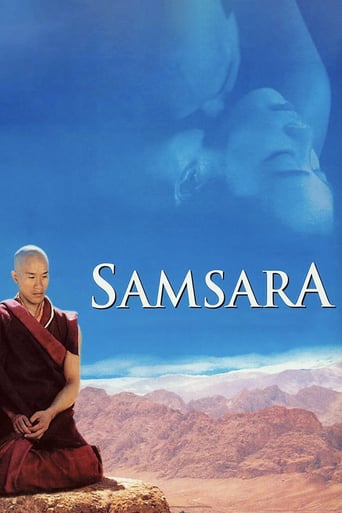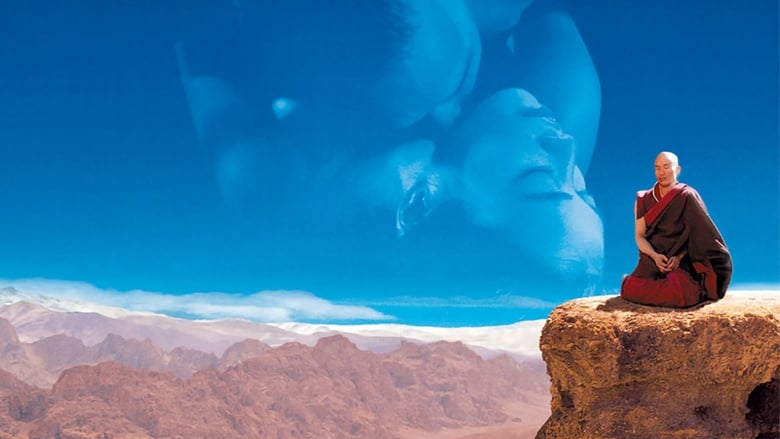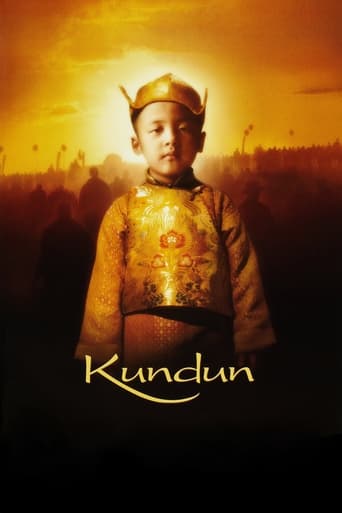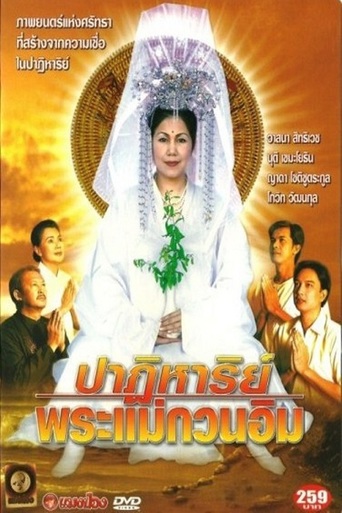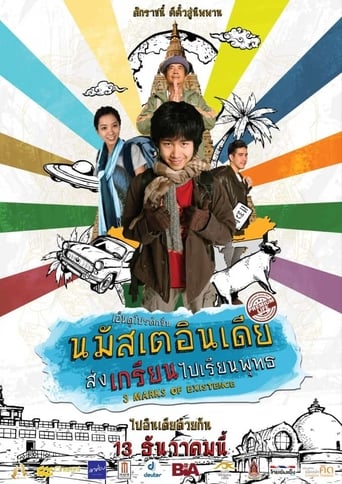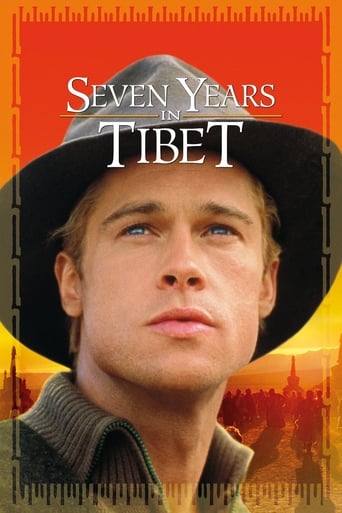Samsara (2002)
A love story situated in the Himalayas. A Buddhist monk can't choose between life and the way of the Buddha.
Watch Trailer
Cast


Similar titles
Reviews
Just what I expected
How sad is this?
A lot of perfectly good film show their cards early, establish a unique premise and let the audience explore a topic at a leisurely pace, without much in terms of surprise. this film is not one of those films.
The film's masterful storytelling did its job. The message was clear. No need to overdo.
The movie provided to us is called "Samsara" about the life and the path of a monk Tashi on his way to realization of the truth. There are several topics that I would like to touch in this review like the main idea of the movie and the presented elements of Buddhism. To begin with, I believe that the main idea of this movie goes around the basic principles of Buddhism: life is suffering. It can be seen that the monk Tashi, who is the main character, is an ordinary person who is greatly influenced and tempted by his desires. From the beginning, we see that his main desire is all about the attraction to the woman and his sexual desires. He was dissatisfied with his monk life, which is evident from his speech to Apo where he asked where is the freedom after his 20 years of monkhood and 3 years of meditation. The main point was that Tashi came to the realization of the truth after he lived full human life with all of its pleasures like having son, having wife, working, having social relationships, and more. His realization happened after he understood that he lost everything he had. Therefore, this shows that every person has his or her own way and path towards the realization that the life is suffering and other truths of Buddhism. The main idea is that person can achieve the Buddhist goals even without having to live as a monk. Moreover, it can be seen that this movie greatly stresses the idea of having to reach the ultimate goal and coming to the truth (four noble truth here), which I believe is implied by the edict on the rock which Tashi takes at the end of the movie. It says "How the rock can be prevented from drying out" and answers the question on the back "By throwing it into the sea". I think that this is the metaphor in which the rock is a human and drying out is the suffering. Hence, in order to stop the "drying out" or suffering, person has to reach the ultimate goal (enlightenment and nirvana) or "be thrown into the sea". The next thing that I would like to point out are the elements from Buddhism that were presented in the movie, many of which actually surprised me. For instance, it is known that monks on their path to ultimate goal need to cut off their attachments like attachment to things, people, and etc. However, we can clearly see that many monks are quite attached to other monks (Tashi and Apo, Tashi and his monk friend who cried when he saw Tashi dreaming of sexual things) and children. Especially, I was surprised to see that children in monasteries are the same children that we see every day: playing and laughing. I, personally, thought that the older monks are stricter and less emotional towards them. However, I think that this part is the hardest for monks to overcome because human beings are social creatures that usually need to have some kind of warm relationships. Moreover, when monks teach these children, they are quite like the parents. So, in some way, it is natural that they act that way towards children. The realization of such things came to me only when I watched these scenes and analyzed them. We also see different scenes from everyday life of the bhiksu. For example, meditations, various ceremonies and interactions with laymen. The movie shows that the lives of monks usually consisted of meditations with mantras, as a path to the enlightenment and nirvana, and everyday activities. It was interesting to see how bhiksus provided services to the ordinary people with mantras, while they repaid them with food and shelter for some time. This was in accordance to what we have learnt on the lessons before. To conclude, I liked this movie because of its main idea that every person has his/her own way to reach the truth of life. I believe that every person is unique and the monkhood might not be suitable for everyone. Moreover, I think that the realization of the truths comes only if the person actually sees and feels the sufferings of life as Tashi who understood that he lost his family. Moreover, this movie shows the aspects of life of the monks, which is quite informative. The only thing that I am still interested is if this movie accurately shows the Tibetian monkhood because movies usually deviate from the reality.
I just wanted to express my gratitude to Pan Nalin and the entire cast and crew of "Samsara" for creating this brilliant film. I have watched it many times by now and it's one of my favorites. Being Bulgarian, I am also proud that there's a significant contribution of Bulgarian artists to the production. But "Samsara" wasn't just a *good film experience* for me, and that's the reason I write this. It changed me.Everyone has a path in life and we all discover different signs along the path."Samsara" was a sign for me.The story, the music, the visuals... something happened in my mind that is beyond my ability to explain. Truth is beyond words and that is the purpose of making art - to try and capture a *feeling of truth* and transmit it in an earthly, impermanent form - a poem, a song, a kiss, a film."Samsara" touched me and helped me.Thank you for this.I'm looking forward to your new creations.
'Samsara' tells the story of Tashi, a young Tibetan Buddhist monk, who renounces monastic life in favour of a relationship with a beautiful young woman named Pema. Together they have a child and as the story unfolds Tashi's life in the material world becomes increasingly complex and difficult.The movie successfully captures the difference between the contemplative life of a Buddhist monk, and the worldly life of a husband. This is most clearly shown in the stark contrast between the opening sequence of the movie, where Tashi is in a long meditation retreat, and the sensual sex scenes later on.The majestic landscapes of Ladakh, one of India's most remote regions, provide a pristine Himalayan backdrop. And the original soundtrack and chanting is haunting at times.The movie has English sub-titles and moves along quite slowly with limited dialogue and many pregnant pauses. This may be disconcerting for some viewers, but to me this reflective mood seemed appropriate for the subject-matter.'Samsara' could be said to build on the groundwork provided by popular movies such as 'Seven Years in Tibet' and 'Kundun', to provide a more authentic and detailed portrayal of the vicissitudes of life and culture in central Asia. (If you enjoy 'Samsara' you may also like 'The Cup'.) This award-winning movie can only enhance a growing interest in Tibetan Buddhism in the West.
I found this movie, a very interesting and meaningful. There were not more than 100 words went on in this movie but the picture itself, gave the viewer many things to think about. What Tashi really did was reversing the Buddha path. Buddha was the one normal human being before he realize the need to discover what life is all about, what he discovered was suffering in living one life. He tried to find the ways to settle with all the suffering, not by avoiding but realize that there are suffering and and he faced it in the noble way.Tashi, however, live his life in the monastery, believe in something he was told to believe not something that he discovered himself. Every human has the feeling of sexual awakening at one point of time, what Tashi did was that he quit the monk-hood, partly because the guiltiness of having such feeling but at the same time desire to discovered the reality for himself. HE entered into the life and began to discover with all the truth in the world, full with desire, anger, jealously, deception etc. but at the same time he discover love, caring, warmth, and happiness. The decision he chose, for me, he was running away from suffering by going back to peace and serenity of being monastery. What he did was not totally right or totally wrong but it does suggesting something. HE is avoiding all the desire that always backfire him throughout the movie. Pema came to him and enlighten him with her thought. Enlightenment does not mean that you have to quit all the normal life and being alone in the temple to cut all the desires. Maybe what make you enlightened is the fact that you stay in life and faced the suffering in the acceptable noble ways. Maybe it is satisfy most of the need but at the same time conquer your own self.

